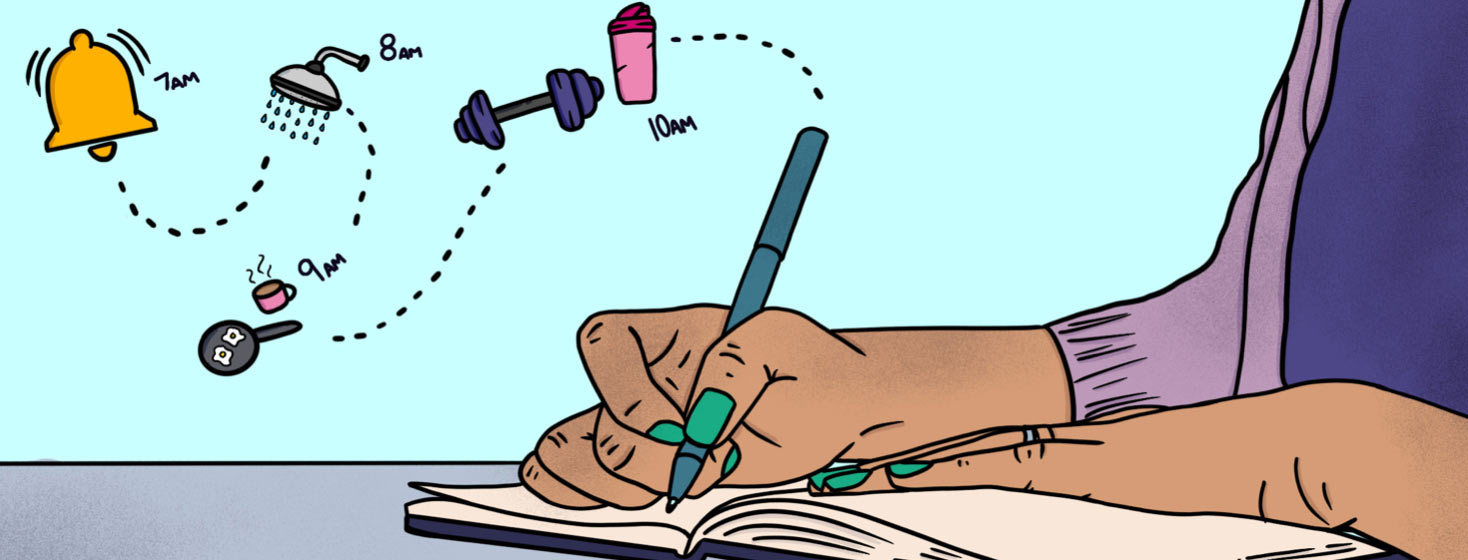Bipolar Disorder and the Biological Clock: How Routine Impacts Your Circadian Rhythm
Consistent daily routines are important for people with bipolar disorder. Biological processes that regulate daily body cycles (circadian rhythms) may not work well in people with bipolar disorder. Stabilizing daily routines can help regulate circadian rhythms. This can improve symptoms of bipolar.1
Medications are usually the first treatment for people with bipolar disorder. However, the symptoms of bipolar can make it hard to follow treatment schedules. Certain types of therapy enhance your daily routine, including taking medications. Learning more about these therapies and other ways to maintain a routine can help improve your quality of life.
What is the role of circadian rhythm in bipolar disorder?
Circadian rhythms are biological processes that work on a 24-hour cycle. Internal clocks maintain normal body processes, including hormones and sleep/wake cycles. A "master clock" in the brain controls circadian rhythms.1
People with bipolar disorder are more sensitive to disruptions in circadian rhythms. The cycles may also be more irregular in bipolar disorder. Many people with bipolar have a later sleep schedule (night owls). Impaired circadian rhythms contribute to symptoms of bipolar disorder. They can also lead to difficulty sleeping and taking scheduled medications.1,2
One possible explanation involves the hormone melatonin. Melatonin helps control our sleep/wake cycle. It has an important role in circadian rhythms. People with bipolar disorder seem to have abnormal melatonin release patterns.1,2
How does routine regulate your circadian rhythm?
Our circadian system depends on more than our internal clocks. The system is most effective when internal clocks synchronize with external factors. Examples of external factors that affect circadian rhythm include:1,3
- Light and dark
- Social activities
- Meal schedules
- Sleep and wake patterns
- Physical activity
- School and work activities
A consistent routine can ensure that these external factors synchronize with your internal clocks. Life events, such as time zone changes, can cause disruptions. The external factors then fall out of sync with your internal clocks. Over time, this leads to issues, including mood episodes and sleep problems.1,3
What therapies can improve routine?
Stable daily routines can steady your circadian rhythms. Certain types of therapies, called social rhythm therapies, can help achieve this. Interpersonal and social rhythm therapy (IPSRT) focuses on:1,3-6
- Sticking to your medication schedules
- Improving the regularity of your daily routine
- Improving your social relationships
- Helping you cope with grief
- Providing you with skills to address conflicts
- Maximizing your role in your social environment
Research suggests that IPSRT enhances daily routines and sleep schedules. It improves anxious, manic, and depressive symptoms in people with bipolar disorder. Ongoing research is studying the effects of different IPSRT programs.1,3,4
Certain prescription drugs may also improve routine. These include lithium and melatonin agonists. More research is needed to understand the best way to use these drugs.1
How can routine help cope with bipolar disorder?
Sticking to a routine can help you cope with bipolar disorder. Sudden shifts in mood and other symptoms often make life feel unpredictable. Consistency can increase your sense of control over your daily life. This can lead to a better outlook and quality of life.7
In addition, sticking to a routine can ensure that you prioritize healthy activities. Regular schedules can help you balance activities that help your mental health. These include maintaining a routine that includes:7
- Well-balanced and regular meals
- Regular exercise
- Social activities and time with friends and family
- Hobbies and personal interests
- Medical appointments, including therapists
What are some tips for sticking to a routine?
Consistent routines can be hard to develop. Different routines work better for different people. Work with a therapist or treatment team to find what works for you. Some tips for sticking to a routine include:8
- Using regular sleeping, waking, and eating times as anchors to structure your day
- Using a calendar to track daily events, schedule new events, and track symptoms
- Using alarms or calendar reminders to take your medications
- Tracking your mood to notice how your schedule affects your mood
- Changing your schedule to aim for a neutral mood
- Finding incentives to keep regular mealtimes, such as planned lunches with coworkers
- Doing the same relaxing activity before bed every evening
- Creating a sleep-friendly environment that is clean, cool, dark, and quiet
- Adding structure with fulfilling hobbies and activities, where you can
Disruptions to your daily routine are unavoidable. It is normal to fall out of certain habits. Learning how to get your routine back can help reduce disruptions. The first step is to avoid letting disruptions add stress. Getting off track does not mean it is impossible to maintain a routine. In fact, it may teach you something that makes your new routine better.8
Think about what is disrupting your routine. In many cases, the cause is a life event, such as travel. During these events, try to find ways to balance flexibility within your anchor points. In other cases, disruptions may mean your routine no longer works for you. You may need to adjust meal times to accommodate new responsibilities. Or, you may need more or less structure in your schedule.8
